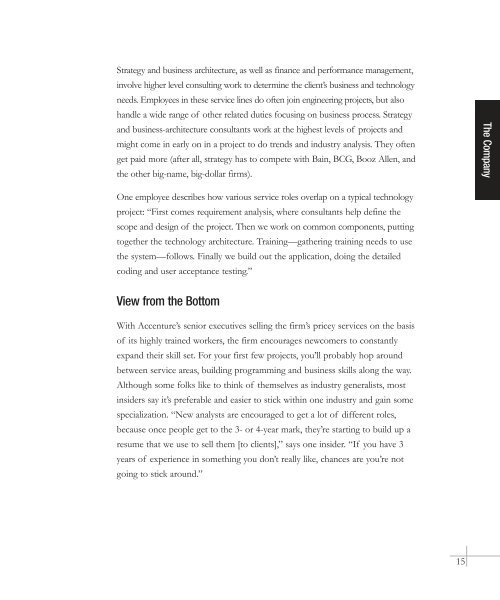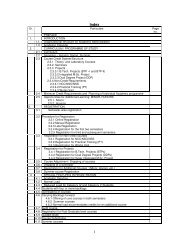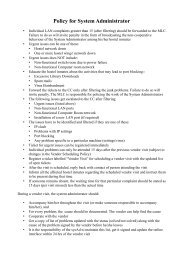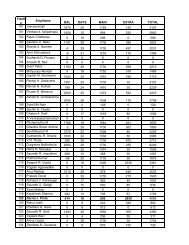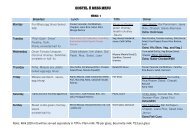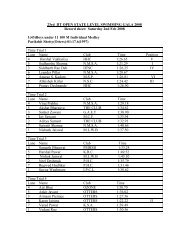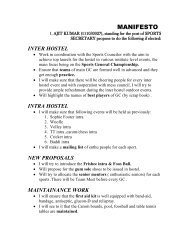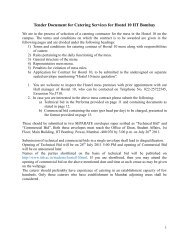Accenture: An insider guide - Gymkhana
Accenture: An insider guide - Gymkhana
Accenture: An insider guide - Gymkhana
Create successful ePaper yourself
Turn your PDF publications into a flip-book with our unique Google optimized e-Paper software.
Strategy and business architecture, as well as finance and performance management,<br />
involve higher level consulting work to determine the client’s business and technology<br />
needs. Employees in these service lines do often join engineering projects, but also<br />
handle a wide range of other related duties focusing on business process. Strategy<br />
and business-architecture consultants work at the highest levels of projects and<br />
might come in early on in a project to do trends and industry analysis. They often<br />
get paid more (after all, strategy has to compete with Bain, BCG, Booz Allen, and<br />
the other big-name, big-dollar firms).<br />
The Company<br />
One employee describes how various service roles overlap on a typical technology<br />
project: “First comes requirement analysis, where consultants help define the<br />
scope and design of the project. Then we work on common components, putting<br />
together the technology architecture. Training—gathering training needs to use<br />
the system—follows. Finally we build out the application, doing the detailed<br />
coding and user acceptance testing.”<br />
View from the Bottom<br />
With <strong>Accenture</strong>’s senior executives selling the firm’s pricey services on the basis<br />
of its highly trained workers, the firm encourages newcomers to constantly<br />
expand their skill set. For your first few projects, you’ll probably hop around<br />
between service areas, building programming and business skills along the way.<br />
Although some folks like to think of themselves as industry generalists, most<br />
<strong>insider</strong>s say it’s preferable and easier to stick within one industry and gain some<br />
specialization. “New analysts are encouraged to get a lot of different roles,<br />
because once people get to the 3- or 4-year mark, they’re starting to build up a<br />
resume that we use to sell them [to clients],” says one <strong>insider</strong>. “If you have 3<br />
years of experience in something you don’t really like, chances are you’re not<br />
going to stick around.”<br />
15


